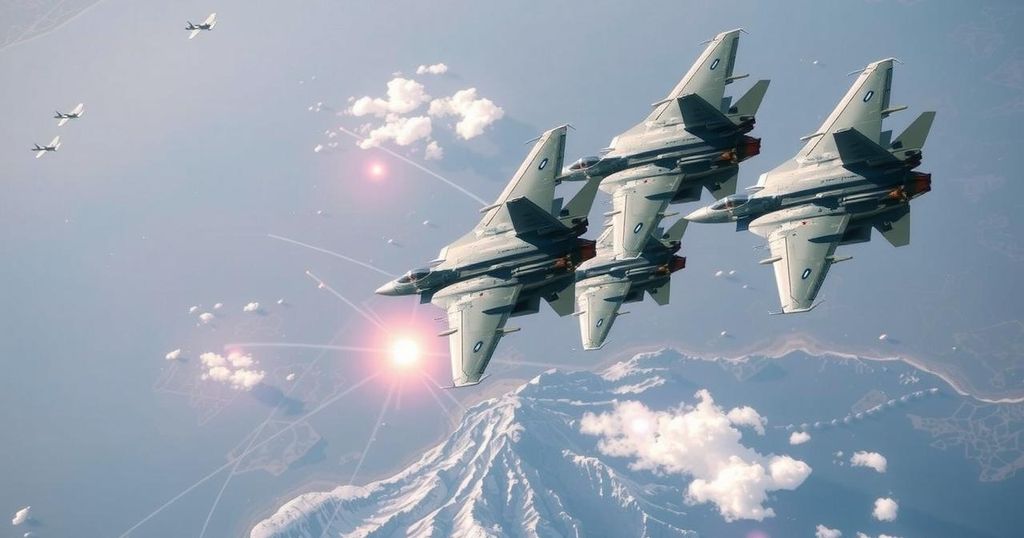Israel’s Air Force has achieved significant air superiority following the collapse of Syria’s military, enabling unimpeded operations near Iran. With advanced U.S.-made aircraft, the IAF has successfully targeted Iranian defenses and Hezbollah assets, showcasing its capability to strike deep into enemy territory. However, the potential resurgence of Syria’s air defenses, particularly with Turkish support, could complicate Israel’s military strategy in the long term.
In recent developments, Israel’s Air Force (IAF) has solidified its air superiority, particularly in the wake of Syria’s military collapse, which has effectively provided Israel with access to the skies over its adversaries, including Iran. Esteemed military analysts have noted that Israel now possesses unprecedented operational flexibility, enabling it to conduct airstrikes virtually unimpeded, significantly extending the range of its military engagements throughout the region. The IAF, largely equipped with advanced American-made aircraft, has demonstrated remarkable capabilities by dismantling Iranian and Russian air defenses, effectively diminishing threats from adversarial missile stocks, and executing precision strikes on Hezbollah leadership without facing significant repercussions. Furthermore, the IAF’s actions have compelled adversaries, such as the Assad regime and Russia, to discreetly seek accommodations with Israel amid their reduced military capacities in a fragmented Syria. Israel’s operational history showcases its tactical advancements, culminating in its recent assertiveness across borders, further illustrated by its capacity to strike deep into enemy territory, including incursions into Iranian airspace. This capability, however, raises questions about the sustainability of Israel’s dominance, especially with Turkey anticipated to play a pivotal role in reshaping Syria’s military landscape as it attempts to rebuild. Ultimately, as the dynamics of military capacity evolve, the implications for Israel’s air strategy and regional security remain critical to monitor.
Israel’s Air Force has been long recognized as a formidable military asset within the Middle East, primarily due to its advanced technology and substantial support from the United States in the form of aircraft and military hardware. The IAF’s relentless commitment to securing airspace and executing strategic strikes has historically allowed Israel to gain critical advantages against larger adversaries. The recent collapse of the Assad regime in Syria marks a dramatic shift in the balance of power, granting Israel unchallenged access to Syrian airspace and empowering it to confront regional threats without the constraints previously posed by Syrian defenses. As a result, Israel has utilized this situation to enhance its military positioning against Iran and its allies. This evolving geopolitical landscape indicates Israel’s ambition to assert greater dominance, yet it also invites potential future challenges as new alliances within Syria are established.
In conclusion, Israel’s Air Force has significantly amplified its operational capacity following the upheaval in Syria, establishing a strategic advantage over Iranian forces and enhancing its ability to conduct precision strikes with minimal resistance. Despite its current supremacy, the shifting alliances in the region, particularly the anticipated involvement of Turkey in Syria, represent prospective challenges for Israel’s enduring air superiority. Continuous developments warrant close observation, as they will undoubtedly shape the strategic landscape and security dynamics in the Middle East.
Original Source: www.businessinsider.com







